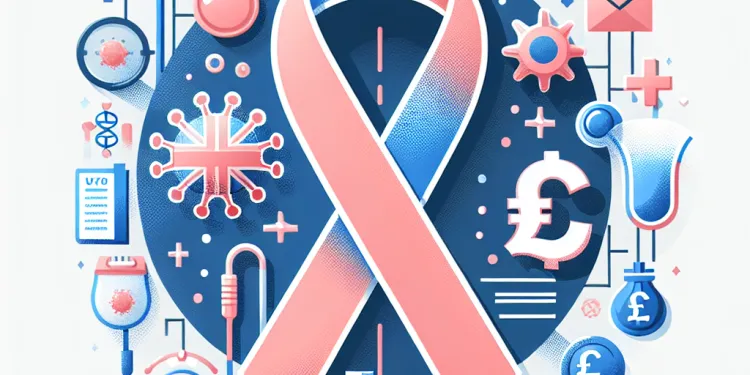
Find A Professional
More Items From Ergsy search
-
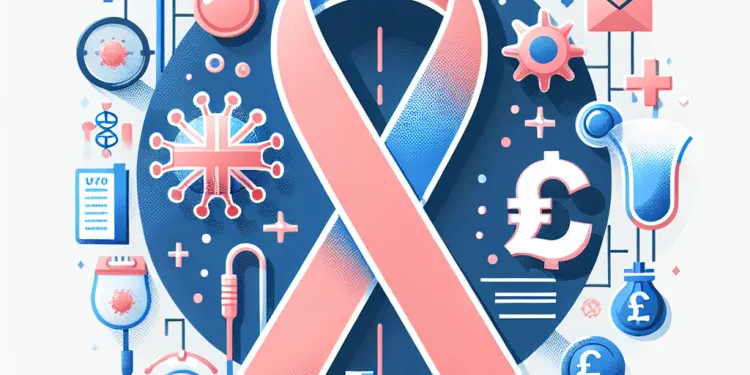
What is the link between HPV and cervical cancer?
Relevance: 100%
-
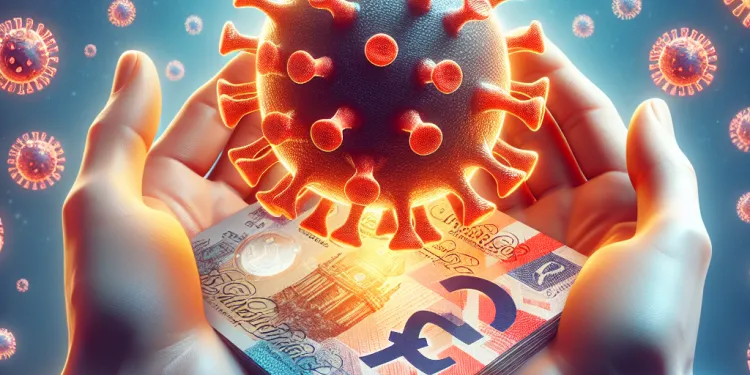
Can HPV lead to cancer?
Relevance: 91%
-

What health problems can HPV cause?
Relevance: 84%
-

Can HPV affect both men and women?
Relevance: 75%
-

Is HPV testing available?
Relevance: 72%
-

Are there symptoms of an HPV infection?
Relevance: 65%
-

What is the HPV Virus?
Relevance: 61%
-

How can HPV be prevented?
Relevance: 58%
-

Bowel cancer - Symptoms and signs to look out for
Relevance: 57%
-

Can HPV be treated?
Relevance: 57%
-

Do men need the HPV vaccine?
Relevance: 56%
-

How common is HPV?
Relevance: 56%
-
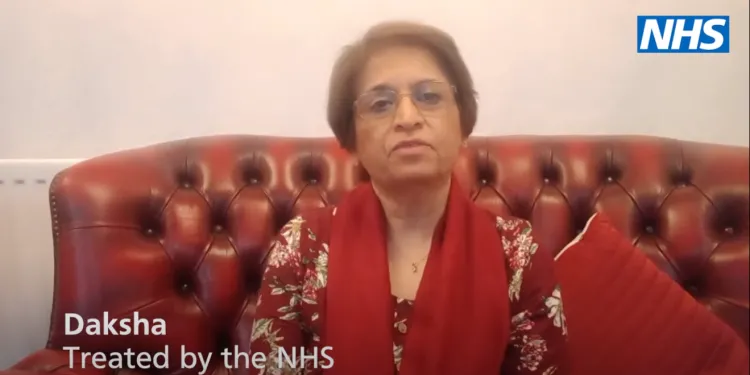
What is Cancer?
Relevance: 53%
-
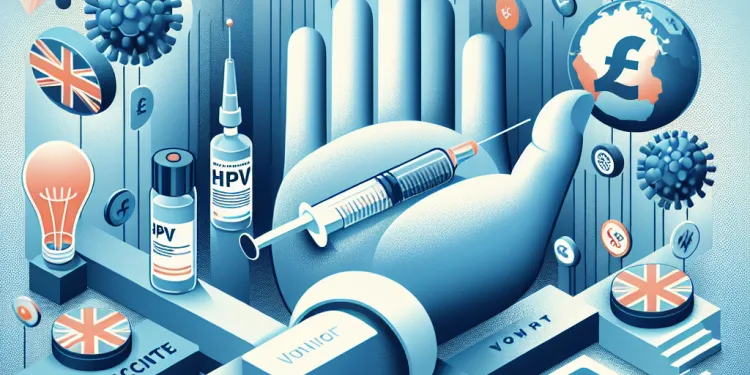
Who should get the HPV vaccine?
Relevance: 51%
-

Can HPV go away on its own?
Relevance: 50%
-
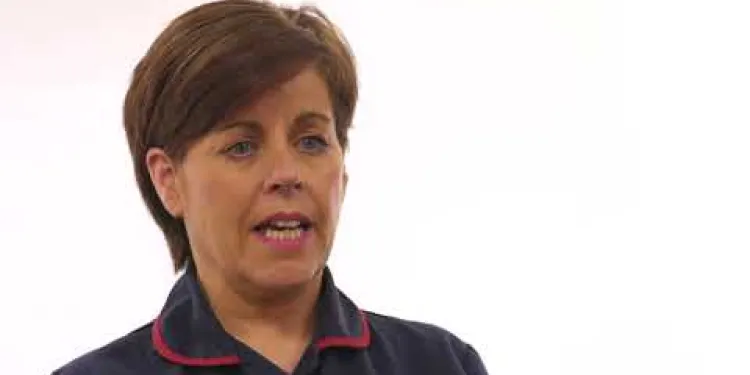
Ovarian Cancer
Relevance: 49%
-

Endometrial Cancer
Relevance: 49%
-

Surge in HPV Vaccination Rates Among Young Women in the UK
Relevance: 48%
-
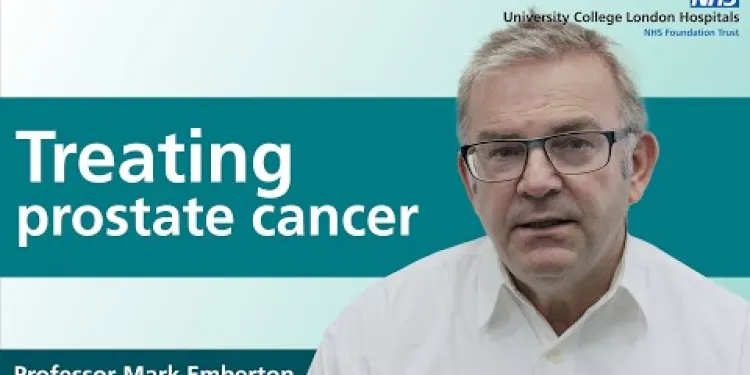
Treating prostate cancer
Relevance: 48%
-

Learn about bowel cancer (British Sign Language version)
Relevance: 48%
-
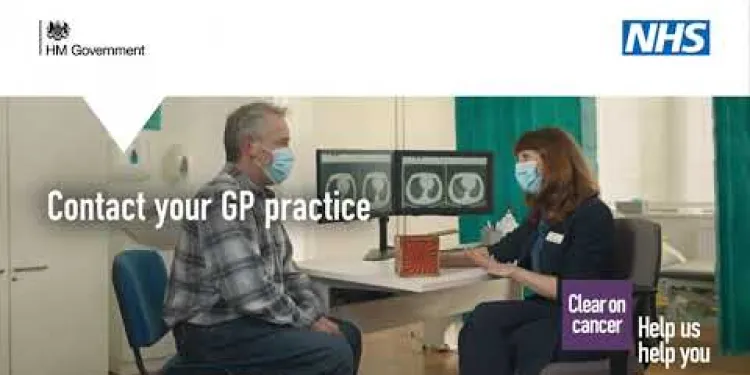
Don't carry the worry of cancer with you | NHS
Relevance: 48%
-

What is the year 8 HPV vaccine? | NHS
Relevance: 47%
-

Vaginal Cancer
Relevance: 47%
-
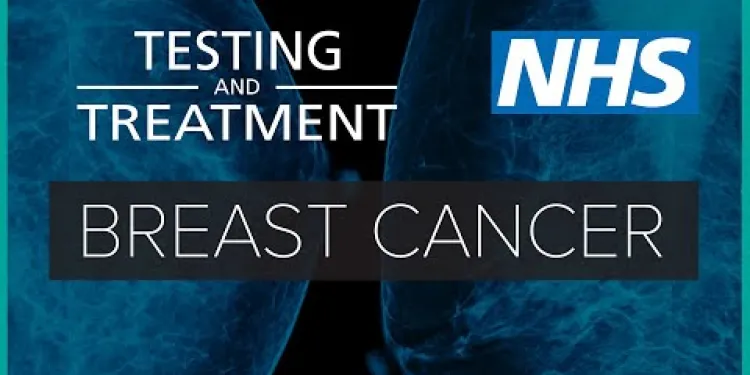
Breast cancer: testing and treatment | NHS
Relevance: 47%
-
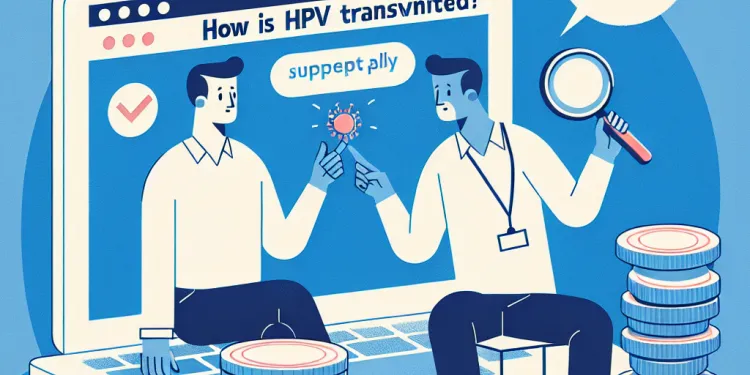
How is HPV transmitted?
Relevance: 46%
-
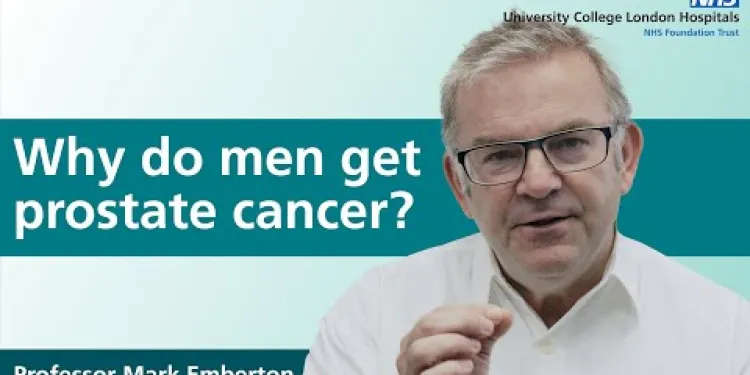
Why do men get prostate cancer?
Relevance: 46%
-
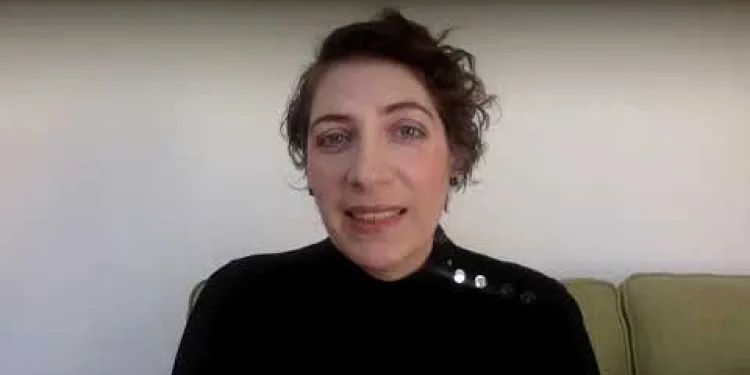
World Pancreatic Cancer Day - No Time to Wait
Relevance: 46%
-

Head and Neck Cancer Diagnosis
Relevance: 46%
-
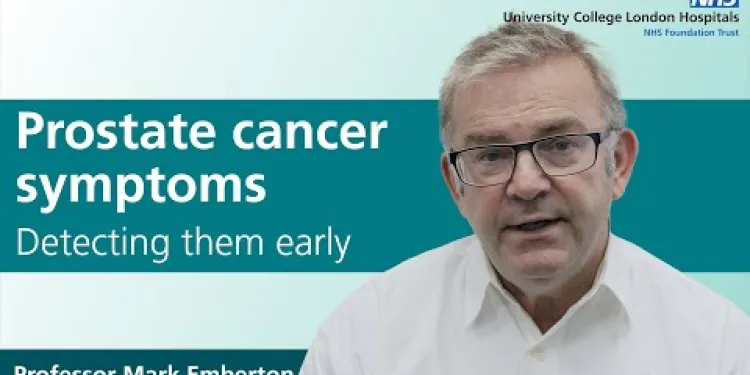
Prostate cancer symptoms - detecting them early
Relevance: 46%
-
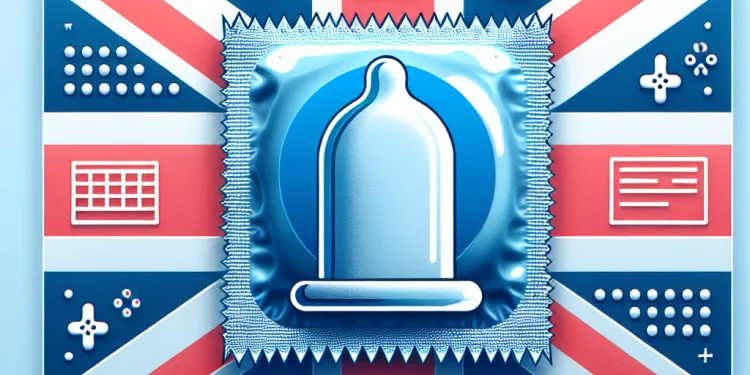
Can using condoms fully protect against HPV?
Relevance: 46%
-
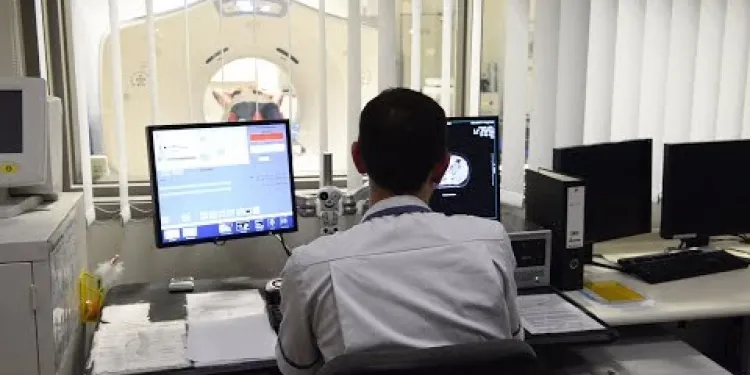
Having radiotherapy for breast cancer - 3 Videos
Relevance: 45%
-

Worried about signs that could be cancer? Contact your GP practice | NHS
Relevance: 45%
-
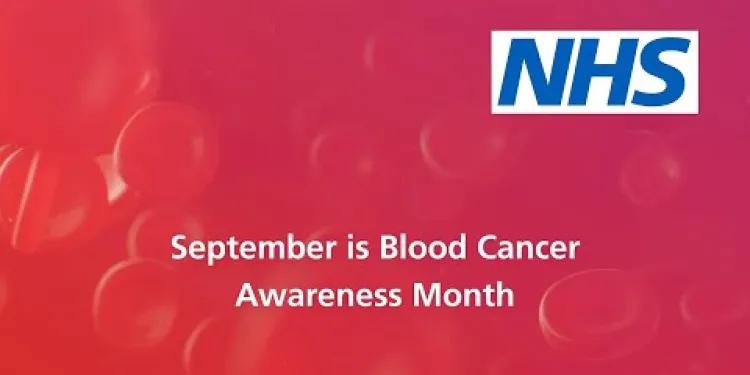
4 facts about blood cancer that you should know | NHS
Relevance: 43%
-

How many types of HPV are there?
Relevance: 43%
-
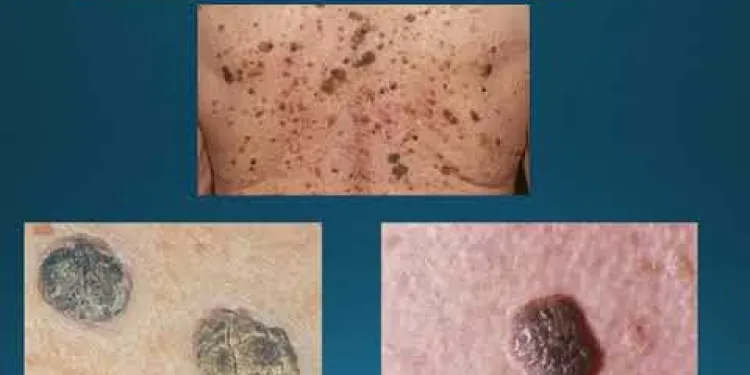
Skin cancer education
Relevance: 43%
-
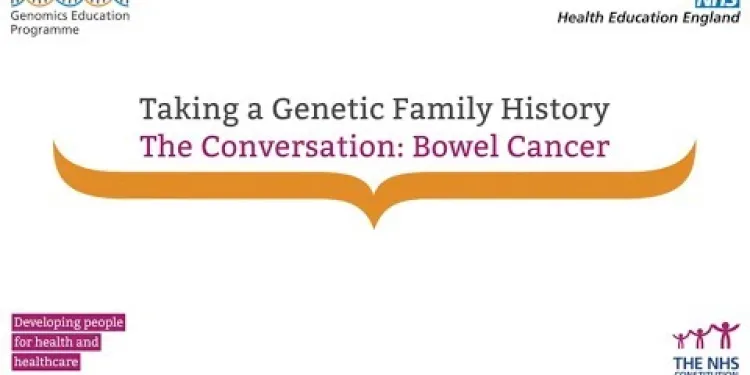
Taking a Genetic Family History - The Conversation (Bowel Cancer)
Relevance: 43%
-
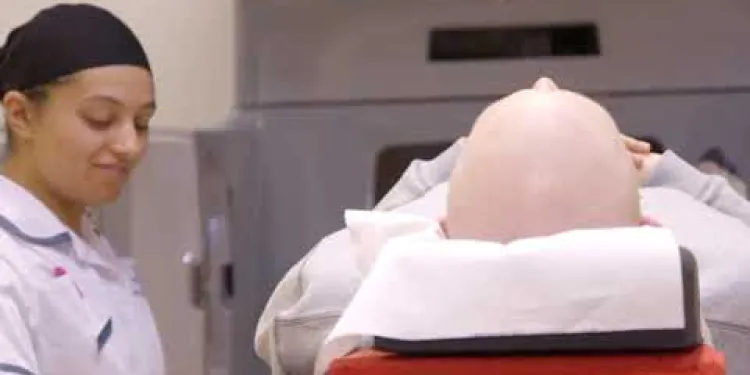
What is Radiotherapy, and its use in treatment for cancers?
Relevance: 42%
-
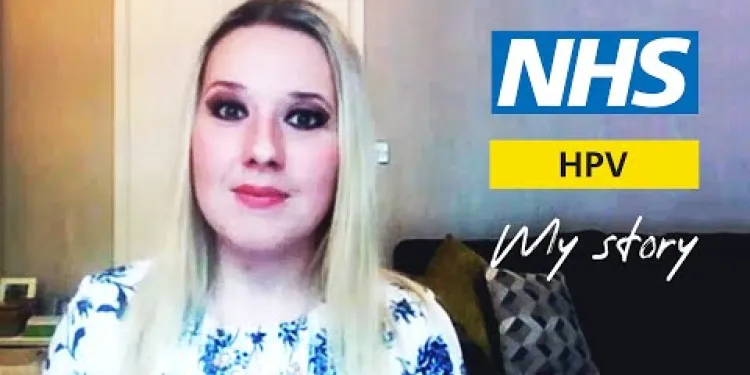
HPV - My Story | NHS
Relevance: 42%
-

What is cervical screening (smear test)?
Relevance: 42%
-
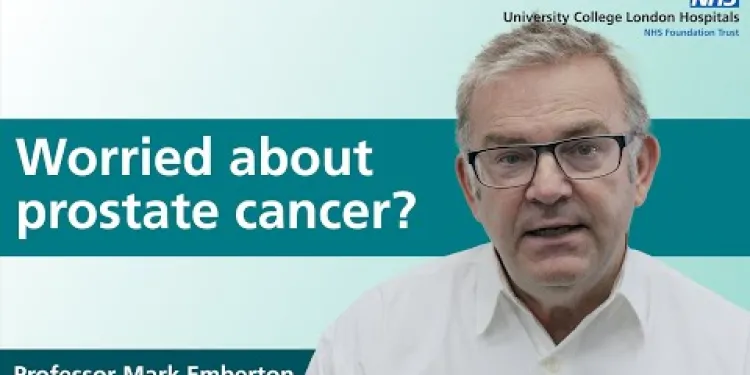
Prostate cancer diagnosis and tests
Relevance: 42%
Understanding HPV
Human Papillomavirus (HPV) is a highly common sexually transmitted infection affecting both men and women. There are over 100 different types of HPV, many of which are harmless and do not cause any noticeable symptoms. However, certain types of HPV can lead to more serious health issues, including cancers. In most cases, the body's immune system clears the HPV infection naturally, but in some cases, persistent infection with high-risk HPV types can lead to the development of cervical cancer.
The Link Between HPV and Cervical Cancer
Cervical cancer is a type of cancer that occurs in the cells of the cervix, the lower part of the uterus that connects to the vagina. Almost all cases of cervical cancer are caused by persistent infection with high-risk types of HPV. The most common high-risk HPV types associated with cervical cancer are HPV 16 and HPV 18. These types are known to cause changes in cervical cells that can eventually lead to cancer if not treated appropriately.
The process usually begins with HPV infection leading to changes in the cervical cells, known as cervical dysplasia or cervical intraepithelial neoplasia (CIN). Over time, if the infection persists and the abnormal cell changes are not monitored or treated, these cells may become cancerous. Regular cervical screening (also known as smear tests in the UK) can help detect these changes early, when they are most manageable.
Prevention and Vaccination
Preventative measures play a crucial role in reducing the risk of developing cervical cancer linked to HPV. Vaccination against HPV is highly effective in preventing infection with the high-risk HPV types most commonly associated with cervical cancer. The NHS offers the HPV vaccine to children aged 12 to 13 in school, which can significantly reduce the risk of cervical and other HPV-related cancers later in life.
In addition to vaccination, regular cervical screening is an essential preventive measure. In the UK, women and people with a cervix aged 25 to 64 are invited for regular cervical screening. Cervical screening looks for high-risk HPV and abnormal changes in the cells of the cervix, allowing for early intervention and treatment to prevent the development of cervical cancer.
The Importance of Awareness
Raising awareness about the link between HPV and cervical cancer is crucial for encouraging vaccination and regular screening attendance. Understanding the role of HPV in cervical cancer development can help individuals make informed decisions about their health. Continued public health efforts to promote HPV vaccination and regular screening are key strategies in reducing the incidence and mortality of cervical cancer.
Understanding HPV
HPV stands for Human Papillomavirus. It is a very common virus. It is passed on through sex and can affect both men and women. There are more than 100 types of HPV. Many types are not harmful and do not cause any signs that you are sick. But some types can make you very sick, like causing cancer. Most of the time, your body fights off HPV by itself. But sometimes, the virus stays in the body. This can cause problems like cervical cancer.
The Link Between HPV and Cervical Cancer
Cervical cancer is a type of cancer that happens in the cervix. The cervix is the lower part of the uterus that connects to the vagina. Almost all cervical cancer is caused by some types of HPV. The most common dangerous types of HPV that can cause cervical cancer are HPV 16 and HPV 18. These types cause changes in the cervix cells, and these changes can lead to cancer if not treated.
This process begins when HPV causes cervical cells to change. This change is called cervical dysplasia or cervical intraepithelial neoplasia (CIN). If the virus stays and the cell changes are not treated, it can turn into cancer. Regular cervical checks, also called smear tests, can find these changes early. Early changes are easier to treat.
Prevention and Vaccination
You can help stop cervical cancer by taking steps to prevent HPV. Getting the HPV vaccine works very well to prevent the virus. In the UK, children aged 12 to 13 can get the vaccine at school. This can greatly reduce the chance of getting cervical cancer or other cancers caused by HPV later on.
Besides the vaccine, going for regular cervical checks is important. In the UK, women and people with a cervix aged 25 to 64 are invited for regular checks. The checks look for dangerous types of HPV and changes in cervical cells. This helps catch problems early when they are easier to fix.
The Importance of Awareness
It is important to know about the link between HPV and cervical cancer. Knowing this helps people decide to get the vaccine and go for checks. Understanding how HPV leads to cervical cancer can help people take care of their health. Teaching more people about the vaccine and checks can help lower the number of cervical cancer cases and deaths.
Frequently Asked Questions
What is HPV?
Human Papillomavirus (HPV) is a group of viruses that infect the skin and mucous membranes. There are over 100 types of HPV, some of which are considered high-risk for causing cancers.
How is HPV linked to cervical cancer?
HPV is linked to cervical cancer because certain high-risk types of HPV can cause changes in the cervical cells, leading to the development of cancer over time.
Which HPV types are most commonly associated with cervical cancer?
HPV types 16 and 18 are most commonly associated with cervical cancer and are responsible for approximately 70% of cervical cancer cases.
How does HPV infection lead to cervical cancer?
Persistent infection with high-risk HPV types can cause cellular changes and precancerous lesions in the cervix. If not detected and treated, these can progress to cervical cancer.
Is HPV infection common?
Yes, HPV infection is very common. It is estimated that most sexually active people will get an HPV infection at some point in their lives.
How is HPV transmitted?
HPV is primarily transmitted through intimate skin-to-skin contact, often during vaginal, anal, or oral sex with an infected person.
Can HPV infections be prevented?
Yes, HPV infections can be prevented through vaccination, practicing safe sex, and routine screenings like Pap tests and HPV tests.
What vaccines are available to protect against HPV?
Vaccines like Gardasil 9 protect against the most common cancer-causing HPV types, including types 16, 18, and others that cause genital warts.
Who should receive the HPV vaccine?
The HPV vaccine is recommended for preteens aged 11 to 12, but it can be given starting at age 9 and up to age 45 for those who did not receive it earlier.
Are there screenings available for cervical cancer prevention?
Yes, Pap tests and HPV testing are used to screen for cervical cancer and precancerous conditions.
What is a Pap test?
A Pap test is a procedure that collects cells from the cervix to look for precancerous or cancerous changes.
How often should women get screened for cervical cancer?
Screening recommendations vary by age and health history, but generally, women should start screening at age 21 and continue every 3-5 years with Pap tests and/or HPV testing.
Can HPV infection be treated?
There is no treatment for the virus itself, but the health problems it causes can be treated. Precancerous lesions can be managed to prevent progression to cancer.
Do all HPV infections lead to cervical cancer?
No, most HPV infections clear on their own within two years and do not lead to cancer. Persistent infection with high-risk HPV types increases the risk of cervical cancer.
Is cervical cancer screening still necessary if vaccinated?
Yes, cervical cancer screening is still necessary after vaccination because the vaccine does not protect against all HPV types that may cause cervical cancer.
Can men be affected by HPV?
Yes, HPV can affect men, leading to cancers of the oropharynx, penis, and anus, as well as genital warts.
What are the symptoms of cervical cancer?
Cervical cancer may not cause symptoms early on, but advanced cervical cancer can cause abnormal vaginal bleeding, pelvic pain, or pain during sex.
Can cervical cancer be cured?
Cervical cancer is highly treatable when found early. Treatment options include surgery, radiation therapy, and chemotherapy.
What can increase the risk of developing cervical cancer from an HPV infection?
Factors like smoking, having a weakened immune system, long-term use of oral contraceptives, and multiple full-term pregnancies can increase the risk.
How important is early detection in the management of cervical cancer?
Early detection through regular screening is crucial as it increases the chance of successful treatment and can prevent the progression to invasive cancer.
What is HPV?
HPV is a short way of saying Human Papillomavirus. It is a kind of virus. Viruses are tiny germs that can make people sick.
There are many types of HPV. Some can give you spots or lumps on the skin, called warts.
We can stay healthy by washing our hands, not sharing drinks, and going to the doctor if we feel unwell.
If you want to learn more, you can ask a grown-up or a doctor. There are also pictures and videos online that can help you understand.
Human Papillomavirus, or HPV, is a group of germs. These germs can get on your skin and inside your body. There are more than 100 types of HPV. Some types can make you very sick by causing cancer.
How does HPV cause cervical cancer?
HPV is a virus. It can sometimes cause cancer in the cervix, which is a part of a woman's body. Some types of HPV can make the cells in the cervix change. Over time, these changes can turn into cancer.
If you're finding this hard to read, you can try these ideas:
- Use a ruler or your finger to follow the words.
- Read out loud slowly and clearly.
- Use pictures or drawings to help you understand better.
What types of HPV are linked to cervical cancer the most?
HPV is a virus. Some HPV types can cause cervical cancer.
The most common types are HPV 16 and HPV 18.
If you find reading hard, try these tips:
- Ask someone to read with you.
- Use a ruler or finger to follow each line.
- Read one part at a time and take breaks.
- Talk to someone about what you read.
There are different types of HPV. Types 16 and 18 are the most common ones that can cause cervical cancer. They cause about 70% of cervical cancer cases.
How can HPV infection cause cervical cancer?
HPV is a virus. It can cause changes in the body. These changes can make cells grow too much.
When cells grow too much, it can cause cancer. If this happens in the cervix, it can become cervical cancer.
It is important to get regular check-ups from a doctor. They can help find any problems early.
Keep learning and asking questions. Drawing pictures can help understand this better. Talking with someone who knows about health can also help.
Some types of HPV virus can stay in the body and make cells in the cervix change. These changes can lead to the start of cancer if they are not found and treated early.
Is HPV infection common?
Yes, HPV is a very common virus. Lots of people have it.
To learn more about HPV, you can use picture books or watch simple videos. These can help you understand better.
Yes, HPV is common. Most people who have sex will get HPV at some time.
How does HPV spread?
HPV is a virus that spreads through skin-to-skin contact.
HPV often spreads during kissing or touching in private areas.
If you have questions or need help, you can ask a trusted adult or visit a doctor or nurse. They can give you more information.
HPV spreads when people's skin touches. This happens mostly during close contact, like vaginal, anal, or oral sex, with someone who has HPV.
Can you stop HPV infections?
Yes, you can stop HPV infections. You can get a vaccine (a special medicine) to help protect you. You can also be safe when having sex by using a condom and by seeing a doctor for regular check-ups, like Pap tests and HPV tests. These tests help doctors look for signs of HPV.
What vaccines can help protect against HPV?
HPV is a virus. Vaccines can help stop people from getting it.
There are different types of HPV vaccines. They stop the virus from making people sick.
Ask your doctor or nurse which vaccine is best for you.
It helps to talk to someone who knows about vaccines. They can answer your questions.
Shots like Gardasil 9 help stop some types of HPV that can cause cancer. They also protect against other types that cause bumps called genital warts.
Who should get the HPV vaccine?
The HPV vaccine helps protect people from a virus.
Kids usually get it when they are 11 or 12 years old.
Teenagers and young adults who did not get it can still get the vaccine.
It is a good idea to talk to a doctor or nurse about the vaccine.
Using pictures or simple stories can help explain why the vaccine is important.
The HPV vaccine is a shot to help keep you healthy. It is best for kids who are 11 or 12 years old. You can also get the shot if you are 9 years old or older. People can still get the shot up to age 45 if they missed it when they were younger.
Can you get tested to stop cervical cancer?
Yes, doctors use Pap tests and HPV tests to check for signs of cervical cancer or changes that could lead to cervical cancer.
What is a Pap test?
A Pap test is a health check for women. It looks for changes in the cells of the cervix. The cervix is the lower part of the womb. It helps to find problems early.
Doctors use a small brush to take a tiny sample of cells. It does not take long. Women may feel a little uncomfortable, but it is important for their health.
Support tools: People can use picture books or videos to understand better.
A Pap test is a check-up used by doctors. It takes some cells from the cervix. The cervix is part of a woman's body. This test looks to see if there are any bad changes in the cells that might lead to cancer later.
Tip: If reading is hard, you can ask someone to help you or use tools that read text aloud.
How often should women get checked for cervical cancer?
Women need to see a doctor to check for cervical cancer.
Try to do this every few years to stay healthy.
Talk to a doctor about when is best for you.
Bring a friend or family member to help if you feel worried.
When you go to the doctor, they might check you to make sure you are healthy. This is called a screening. Women should start getting these checks when they are 21 years old. After that, they should see the doctor every 3 to 5 years. The doctor might do a Pap test or an HPV test to check for any problems.
Can HPV infection be treated?
HPV is a virus that some people get. Doctors cannot always cure it, but the body can often fight it off by itself. Some types of HPV go away on their own without any treatment.
If you have questions or concerns, it is a good idea to talk to a doctor. They can help explain things and check if you need any medicine or treatment.
Using good hygiene, eating healthy food, and not smoking can help your body stay strong.
You can use tools like picture cards or apps to help remember important information the doctor tells you.
There is no cure for the virus, but doctors can help with the health problems it causes. If you have lesions that might turn into cancer, doctors can treat them to stop cancer from happening.
Does every HPV infection cause cervical cancer?
Most HPV infections do not cause cancer. Only certain types of HPV can sometimes lead to cervical cancer. The body often fights off HPV on its own.
Using tools like picture books or videos can help explain this better. Talking with a doctor can also be helpful.
No, most HPV infections go away by themselves in two years and do not cause cancer. But if the HPV infection stays for a long time with certain types of HPV, it can make the chance of getting cervical cancer higher.
Reading Tip: If you find long words tricky, try breaking them into smaller parts. For example, "infec-tion" and "cer-vi-cal". Using a dictionary or asking someone for help can also make reading easier.
Do I still need tests for cervical cancer if I've had the vaccine?
The vaccine helps keep you safe from some types of cervical cancer, but it doesn't protect you from all types. So, it's still important to have regular checks to make sure everything is okay.
These checks are called screening tests. They look for any signs of cancer early on, so you can get the right help if you need it.
Tip: Set reminders on your phone or ask someone to remind you when it's time for your next check-up.
Yes, it is important to get tested for cervical cancer even after getting the vaccine. This is because the vaccine does not stop all the types of HPV that can cause cervical cancer.
Can boys get HPV?
Yes, boys can get HPV too. HPV is a virus that can affect boys and girls. It is important for everyone to know about HPV. Talk to a doctor if you have questions.
You can look at pictures or videos to help understand better. A trusted adult, like a parent or teacher, can also help explain.
Yes, HPV can affect men. It can cause cancer in the throat, penis, and anus. It can also cause warts on the private parts.
What signs show cervical cancer?
Cervical cancer usually does not show signs at the start. But when it gets worse, cervical cancer can cause bleeding from the vagina that is not normal. It can also cause pain in the lower tummy or pain when having sex.
Can cervical cancer be fixed?
Cervical cancer is easier to treat if doctors find it early. You can treat it with surgery, radiation, or medicine called chemotherapy.
What makes cervical cancer more likely with HPV?
Some things can make the risk higher. These include smoking, a weak immune system, taking birth control pills for a long time, and having many full-term pregnancies.
Why is it important to find cervical cancer early?
It is very important to find cervical cancer early. If we find it early, it's easier to treat. It can help to stop the cancer from growing too much.
Here are some things that can help:
- Go to the doctor for regular check-ups.
- Get screening tests like a Pap smear.
- Talk to the doctor if you feel unwell or notice changes.
Finding cancer early is very important. Checking for cancer regularly helps doctors treat it better. It can also stop cancer from getting worse.
Useful Links
- Ergsy carfully checks the information in the videos we provide here.
- Videos shown by Youtube after a video has completed, have NOT been reviewed by ERGSY.
- To view, click the arrow in centre of video.
- Most of the videos you find here will have subtitles and/or closed captions available.
- You may need to turn these on, and choose your preferred language.
- Go to the video you'd like to watch.
- If closed captions (CC) are available, settings will be visible on the bottom right of the video player.
- To turn on Captions, click settings .
- To turn off Captions, click settings again.
More Items From Ergsy search
-

What is the link between HPV and cervical cancer?
Relevance: 100%
-

Can HPV lead to cancer?
Relevance: 91%
-

What health problems can HPV cause?
Relevance: 84%
-

Can HPV affect both men and women?
Relevance: 75%
-

Is HPV testing available?
Relevance: 72%
-

Are there symptoms of an HPV infection?
Relevance: 65%
-

What is the HPV Virus?
Relevance: 61%
-

How can HPV be prevented?
Relevance: 58%
-

Bowel cancer - Symptoms and signs to look out for
Relevance: 57%
-

Can HPV be treated?
Relevance: 57%
-

Do men need the HPV vaccine?
Relevance: 56%
-

How common is HPV?
Relevance: 56%
-

What is Cancer?
Relevance: 53%
-

Who should get the HPV vaccine?
Relevance: 51%
-

Can HPV go away on its own?
Relevance: 50%
-

Ovarian Cancer
Relevance: 49%
-

Endometrial Cancer
Relevance: 49%
-

Surge in HPV Vaccination Rates Among Young Women in the UK
Relevance: 48%
-

Treating prostate cancer
Relevance: 48%
-

Learn about bowel cancer (British Sign Language version)
Relevance: 48%
-

Don't carry the worry of cancer with you | NHS
Relevance: 48%
-

What is the year 8 HPV vaccine? | NHS
Relevance: 47%
-

Vaginal Cancer
Relevance: 47%
-

Breast cancer: testing and treatment | NHS
Relevance: 47%
-

How is HPV transmitted?
Relevance: 46%
-

Why do men get prostate cancer?
Relevance: 46%
-

World Pancreatic Cancer Day - No Time to Wait
Relevance: 46%
-

Head and Neck Cancer Diagnosis
Relevance: 46%
-

Prostate cancer symptoms - detecting them early
Relevance: 46%
-

Can using condoms fully protect against HPV?
Relevance: 46%
-

Having radiotherapy for breast cancer - 3 Videos
Relevance: 45%
-

Worried about signs that could be cancer? Contact your GP practice | NHS
Relevance: 45%
-

4 facts about blood cancer that you should know | NHS
Relevance: 43%
-

How many types of HPV are there?
Relevance: 43%
-

Skin cancer education
Relevance: 43%
-

Taking a Genetic Family History - The Conversation (Bowel Cancer)
Relevance: 43%
-

What is Radiotherapy, and its use in treatment for cancers?
Relevance: 42%
-

HPV - My Story | NHS
Relevance: 42%
-

What is cervical screening (smear test)?
Relevance: 42%
-

Prostate cancer diagnosis and tests
Relevance: 42%